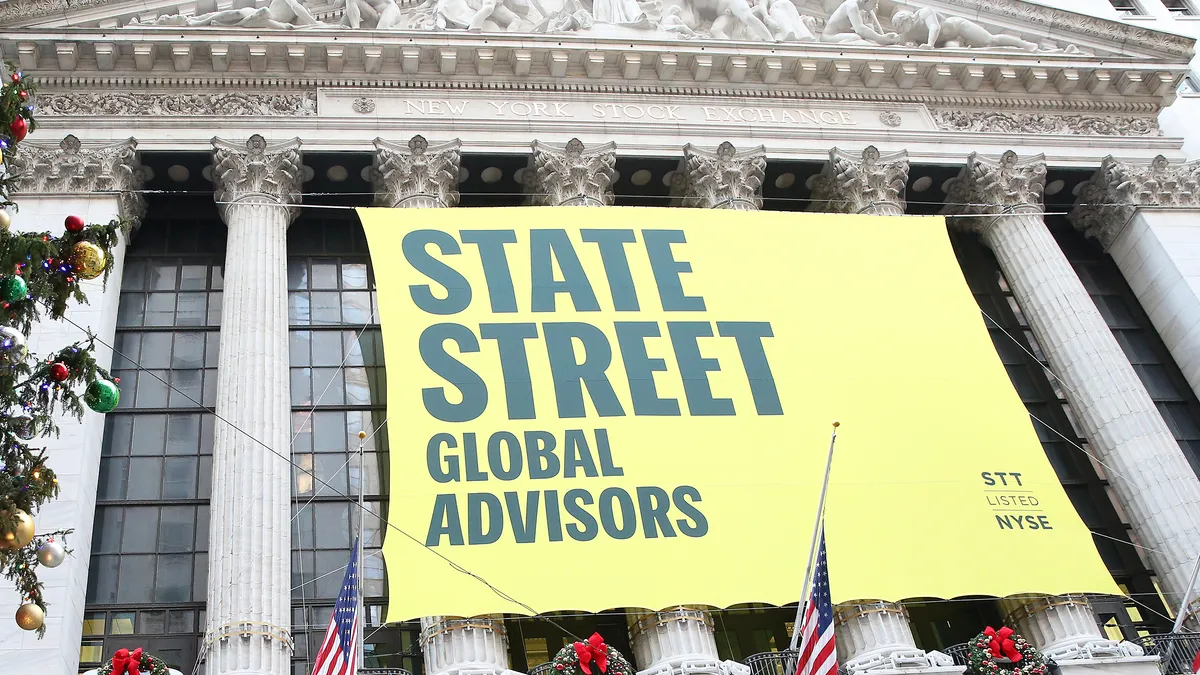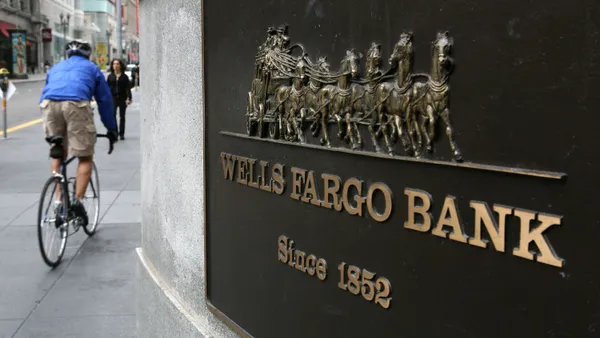UPDATE: March 11, 2021: HSBC will phase out by 2030 its financing of companies that deal in coal-fired power and thermal coal mining in the European Union and Organisation for Economic Co-operation and Development, and by 2040 elsewhere, the bank said Thursday, according to the Financial Times.
The move helped Europe’s largest lender avoid a shareholder revolt ahead of its May 28 annual meeting. A group of 15 of HSBC’s large institutional investors — brought together by responsible-investing watchdog ShareAction — filed a resolution in January asking the bank to publish a strategy and targets to reduce its exposure to fossil fuel assets.
As part of the HSBC board-backed resolution agreed Thursday, the bank will set short- and medium-term science-based targets this year regarding its financing of oil, gas, power and utility companies in 2021, and outline goals in other sectors in 2022.
In return, the shareholders said they would withdraw their resolution.
“Today’s announcement shows that robust shareholder engagement can deliver concrete results and sets an important precedent for the banking industry,” Jeanne Martin, senior campaign manager at ShareAction, told Reuters.
Thursday’s proposal marks the “next phase” of a net-zero strategy the bank announced in October, said Noel Quinn, the bank’s CEO.
“This represents an unprecedented level of cooperation between a bank, shareholders and [nongovernmental organizations] on a critical issue, with a positive outcome for all,” he told the Financial Times.
Dive Brief:
- State Street Global Advisors said it will start voting against board members of S&P 500 and FTSE 100-listed companies if those firms fail to disclose the racial and ethnic makeup of their boards.
- "The preponderance of evidence demonstrates clearly and unequivocally that racial and ethnic inequity is a systemic risk that threatens lives, companies, communities and our economy — and is material to long-term sustainable returns," Cyrus Taraporevala, CEO of the bank's $3.1 trillion investment arm, wrote in a letter sent to chief executives Monday, according to the Financial Times.
- The move builds on a policy State Street laid out last year, in which the bank said it would "take appropriate voting action" against board members at big U.S., U.K., French, German, Japanese and Australian companies that lag on environmental, social and governance (ESG) standards if they "cannot articulate how they plan to improve" their scores on a homegrown metric the bank calls the "responsibility factor."
Dive Insight:
At least for this year, State Street is asking companies merely to divulge the racial breakdown of their boards, not necessarily to make changes — yet. But the asset manager said that next year, it would begin voting against the chair of the nominating and governance committees of companies that don't have at least one board member who is a minority.
The bank also is asking S&P 500 companies next year to begin reporting the racial and ethnic makeup of their entire workforces.
Other investment banks — and even an exchange — last year said they'd take action against companies with non-diverse boards. Goldman Sachs in January 2020 said it would no longer take a company public in the U.S. or Europe if its board is composed of all straight, white men.
In December, Nasdaq proposed requiring companies to have at least two diverse directors, including one who self-identifies as female and one who self-identifies as either an underrepresented minority or lesbian, gay, bisexual or transgender. The New York Times, citing Nasdaq data, claims more than 75% of the exchange's roughly 3,200 companies do not meet those criteria.
The finance industry in 2020 made greater commitments toward evaluating itself through the lens of race — especially after the May death of George Floyd at the hands of police. Banks such as Wells Fargo sought to double the number of Black leaders at the bank — and to factor individual executives' efforts to increase diversity into their year-end pay packages. Additionally, a number of financial institutions, including Bank of America, PNC and JPMorgan Chase, pledged $1 billion or more toward rebalancing wealth inequality along racial lines.
With its warning, State Street aims higher. But advocacy group Majority Action tallied that the investment bank last year voted to re-elect the entire board of 26 of the 56 companies in the S&P 500 that had no directors from a racial or ethnically diverse background, according to the Financial Times. By comparison, fellow asset managers BlackRock and Vanguard, respectively, voted to re-elect the full board at 52 and 51 of these companies.
HSBC and climate
Elsewhere on the ESG spectrum, ShareAction, a watchdog for responsible investing, is pushing HSBC to get serious about its climate commitments.
A group of 15 of the bank's institutional investors — brought together by ShareAction — filed a resolution, ahead of HSBC's annual shareholder meeting in April, asking the bank to publish a strategy and targets to reduce its exposure to fossil fuel assets, the Financial Times reported Sunday.
HSBC said in October it would aim to reach net zero carbon emissions by 2050, matching the terms of the 2015 Paris climate agreement. But some investors have raised concern that the bank hasn't followed up with specific goals on curbing fossil-fuel funding.
"We welcome the net-zero ambition, but such an ambition needs to be underpinned with a real transition plan and reflect the sense of urgency highlighted by climate science," said Helen Price, stewardship manager at Brunel Pension Partnership, according to Bloomberg. Brunel is one of the 15 investors that signed on to the resolution.
"Without a credible transition plan, the net-zero ambition isn't a new and improved recipe for the bank, it's just new packaging," Price said.
HSBC said it was "strongly committed to addressing climate change, in line with our clear ambition to align our financed emissions of our entire business portfolio to net zero," according to the Financial Times.
"As we work to set out the detail of our road map to net zero, we continue to positively engage with our customers, shareholders and ShareAction," the bank said in a statement, according to Bloomberg.
ShareAction last year was behind a resolution last year pushing fellow British lender Barclays to phase out fossil fuel lending. The bank devised and passed its own resolution committing to net zero by 2050 but otherwise lacking specifics. Barclays in November issued a statement on its website adding target data and tracking its progress.
HSBC is debating whether, like Barclays, to propose its own motion concerning the net-zero policy, the Financial Times reported, citing anonymous sources. The bank is also considering giving shareholders an annual vote on climate change policy, according to the publication.
ShareAction's resolution will need backing from 75% of the votes cast at HSBC's April meeting to pass. By comparison, 24% of Barclays voters supported the advocacy group's tougher resolution last year, Reuters reported.
Data from another group, Rainforest Action Network (RAN), found HSBC cut its oil sands financing from $1.3 billion in 2017 to $231 million in 2019.
But the bank has helped arrange $89.1 billion in bonds and loans for energy companies, excluding solar, wind and other renewable producers, since the Paris agreement, according to Bloomberg. That trails only Barclays ($92 billion) and BNP Paribas ($90.5 billion), among European lenders, the wire service reported.
ShareAction said HSBC provided $1.8 billion to fossil fuel companies in the four months leading up to its October net-zero announcement.
The bank expects, however, to provide up to $1 trillion by 2030 to help its customers decarbonize, an HSBC spokesperson told Bloomberg.














